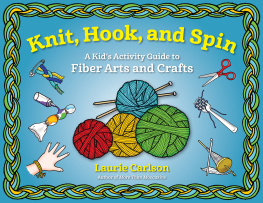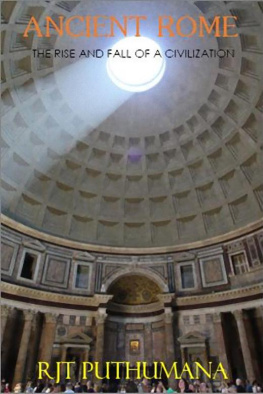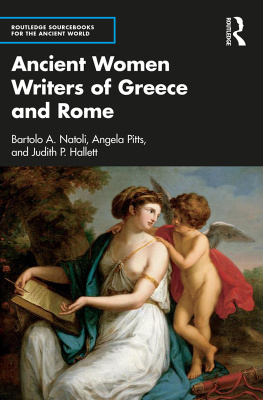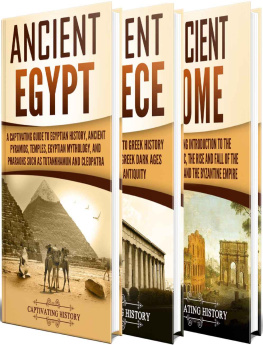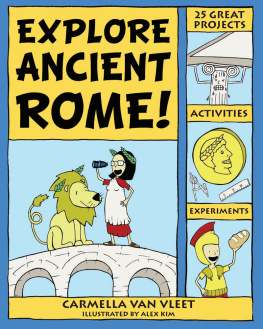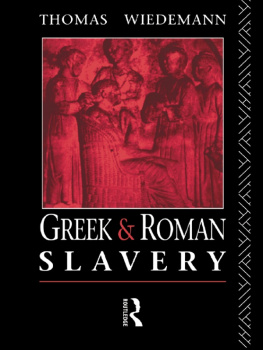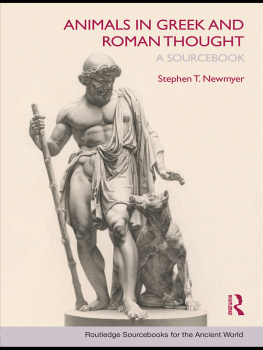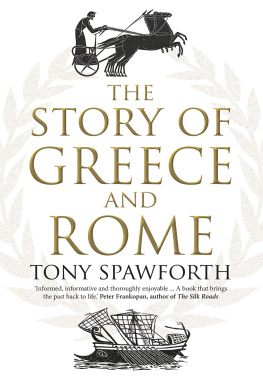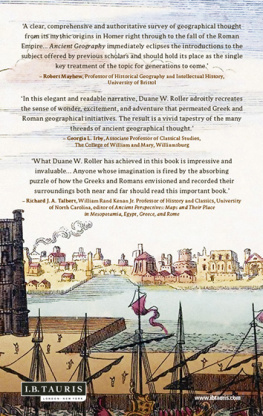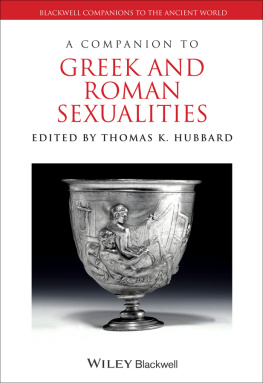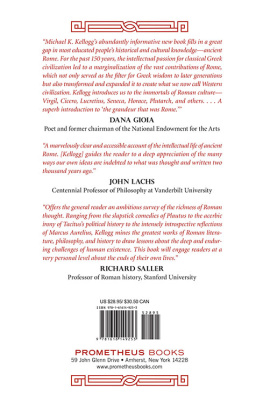CLASSICAL KIDS
CLASSICAL KIDS
An Activity Guide to Life in Ancient Greece and Rome

LAURIE CARLSON

CIP:Library of Congress Cataloging-in-Publication Data
Carlson, Laurie M., 1952
Classical kids : an activity guide to life in Ancient Greece and
Rome / Laurie Carlson.
p. cm.
Includes bibliographical references.
Summary: Demonstrates life in ancient Greece and Rome, and the contributions of those cultures to modern civilization, through hands-on activities such as making a star gazer, chiseling a clay tablet, and weaving Roman sandals.
ISBN 1-55652-290-8
1. Greece-Social life and customs-Juvenile literature. 2. Rome
Social life and customs-Juvenile literature. 3. Creative
activities and seat work-Juvenile literature. [1. Greece
Civilization-To 146 B.C. 2. Rome-Civilization. 3. Handicraft.]
I. Title.
DE71.C26 1998
938-dc21 97-52676
CIP
AC
Design and illustrations 1998 by Fran Lee
The author and the publisher of this book disclaim all liability incurred in connection with the use of the information contained in this book.
1998 by Laurie Carlson
All rights reserved
First edition
Published by Chicago Review Press, Incorporated
814 North Franklin Street
Chicago, Illinois 60610
ISBN-13: 978-1-55652-290-1
ISBN-10: 1-55652-290-8
Printed in the United States of America

TO TYLER
Let no one be slow to seek wisdom when
he is young nor weary in the search
when he has grown old.
Epicurus. Greek philosopher, 341 270 B.C.
Carpe diem!
Seize the day!
Acknowledgments
Thank you to Cynthia Sherry, Lisa Rosenthal-Hogarth, Rita Baladad, Fran Lee, Curt and Linda Matthews, Mark Suchomel, Kathy Mirkin, Mark Voigt, Susan Sewall, and the rest of the team at Chicago Review Press. A huge thanks for another enjoyable project together!
CONTENTS
TIME LINE

THE ACE OF GREECE
Ancient Greece was an area but never one nation. The people lived in city-states that were independent and were often at war with each other. Although they were sometimes competitive, all the city-states shared the same language and customs. Because of the rugged land, most people settled in river valleys or along the coast. In time the population grew too large for the food supply, so Greek city-states began to set up colonies in other places.
Greeks sailed around the Mediterranean Sea in search of locations for new settlements.
A landless Greek could go to a colony and become a landowner. Others just wanted to go for the adventure. The colonists took a sacred flame from the hearth of the city-state. When the new colony was built and secure, it broke ties with the city-state.
Two city-states became the most important and powerful, Sparta and Athens. They were both homes to Greek citizens who spoke the same language, worshipped the same gods, and were located only one hundred miles apart. Yet life was very different in these two city-state.
MAP OF ANCIENT GREECE

SPARTA
People in Sparta wanted order and stability. Nearly every part of life was controlled by the law, and the city-state was ruled by kings. Most Spartan citizens didnt work; they lived off the proceeds from the public lands worked by slaves and noncitizens. At about age six, children were sent to live in training barracks. Boys learned military arts and virtues like discipline, obedience, toughness, and endurance. Girls learned things they needed to know to run a home and take care of a family when they grew up. Girls also spent a lot of energy on sports and athletics. Spartans wanted girls to be strong so they would bear strong children. When boys reached the age of twenty they entered the army. They could marry, but they couldnt go live with their wives and families until age thirty. At thirty they earned the right to vote in the assembly. They served in the Spartan army until about age sixty.
Spartans ate simple foods: black broth and mush. They wore simple, plain clothing, unless going into battle, when they wore a scarlet tunic and a polished bronze helmet. Spartans were forbidden to work in stores or trade and couldnt make crafts or art because they needed to spend their efforts keeping fit and strong.
No other army ever entered Spartan territory. They were the best soldiers anywhere.
ATHENS
The citizens of Athens enjoyed freedom and liked change and creative living. They didnt work much either, having slaves do everything. Athens received profits from silver mines outside the city, so few citizens had to worry about money. Citizens were paid to serve on court juries or hold elected office. Athenians loved going to the theater to see plays and pageants. The government paid admission for the poor so everyone could attend.
Athens had an army, but it was nothing like the Spartan army. Athens also had a big navy, with more than two hundred ships. Citizens were paid to be in the navy, too.
Citizens of Athens voted for their government officials. Aristotle was an Athenian who thought that the system of voting in a democracy could become just like having a king. He said that politicians would flatter and make promises to the voters just like the members of a royal court did to a king. Then, once in office, they would serve their own interests instead of the countrys. He thought laws provided a more fair system of government than election by a majority vote. Athens had a system of laws, but the citizens voted, too. They cast their votes on pieces of broken pottery. Sometimes they voted to send a politician away for several years; however, he could come back later and run for office again.
Athens was a democracy but only for free male citizens. Women couldnt vote, own property, or become citizens. They had to spend nearly all of their time inside their homes; men even did the shopping. Only people born to parents who were citizens could become citizens. At age eighteen, boys applied to become citizens of Athens. If there was doubt whether a boy was freeborn, a panel of five judges determined whether he could become a citizen or not. If it appeared he had no right to become a citizen, the city sold him into slavery. When a boy was approved as a citizen, he went into the army and learned to fight, march, and drill. At the end of the second year the soldiers were sent out to patrol the country and live at guard posts. During the two years in the military they received a cloak but no pay. Fortunately, they didnt have to pay taxes during the two years.
Citizens of Athens were elected to many jobs. There was a treasurer of military funds, treasurers of the theater fund (all poor citizens could apply to the fund to receive money to pay for theater performances), and a superintendent of the water supply. They were elected to their positions for a term that lasted from one Panathenaea Festival to the next. The elections were held in July of each year.
Next page

